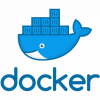Related Content
 |
Implementing Continuous Delivery in the Federal Government Federal agencies generally have more regulation, slower processes, and a command-and-control style of bureaucracy. How does it work when trying to foster agility and implement a continuous delivery model? Gene Gotimer relates his experiences and challenges with encouraging a culture change in federal government. |
|
 |
3 Steps to Transformational Leadership for Business Agility Building your agile organization only starts with developing software in an agile way. The next step is transforming your business with a customer-focused embrace of agile across the entire enterprise. Managers who want a truly agile organization must lead with focus, steer from the edges, and change the system. |
|
 |
You Can’t Rush Agile Change Too often, organizations try to rush agile change. It is usually because they want to see the business benefits of agile as quickly as possible. Unfortunately, change doesn’t work like that—you can’t rush it. In fact, trying to change too fast often results in no change at all. Here are some examples to avoid. |
|
 |
How Failed Agile Transformations Can Still Have Value Not all agile transformations are successful in the same way; in fact, it’s possible to get tremendous value out of a failed attempt. A team that doesn't end up fully transitioning to an agile framework can still borrow some lessons from agile development methods to improve their processes. |
|
|
|
Agile for Everything: Taking the Manifesto beyond Software The values of the Agile Manifesto, while written to apply to software, can form a basis for an adaptive approach to any project. Going from specific to general and inspecting and adapting along the way are great design ideas, no matter what you’re working on. Here's how to use feedback to take agile beyond software. |
|
 |
What Aircrews Can Teach DevOps Teams Aircrews learn a set of skills involving a structured way of communicating that breaks down barriers and forces an honest evaluation of the issues. They also automate what they can but still practice their craft over and over again, including what to do during failures. DevOps teams can learn a lot from aircrews. |
|
 |
Why the Minimum Viable Product Matters The MVP brings tremendous value to a team’s ability to effectively implement agile practices. It also allows us to better understand what “value” actually means to our users and how context changes the meaning. Your MVP must move through your validation and release cycles while still being valuable to your users. |
|
 |
How Testers Can Use Docker to Shift Left and Automate Deployments Docker has several advantages over virtual machines: It’s easier to deal with, starts up faster, and requires fewer resources. Using Docker also can give testers more confidence in their releases. Developers use the same environment that will be used in production, which streamlines code delivery and shifts QA left. |








